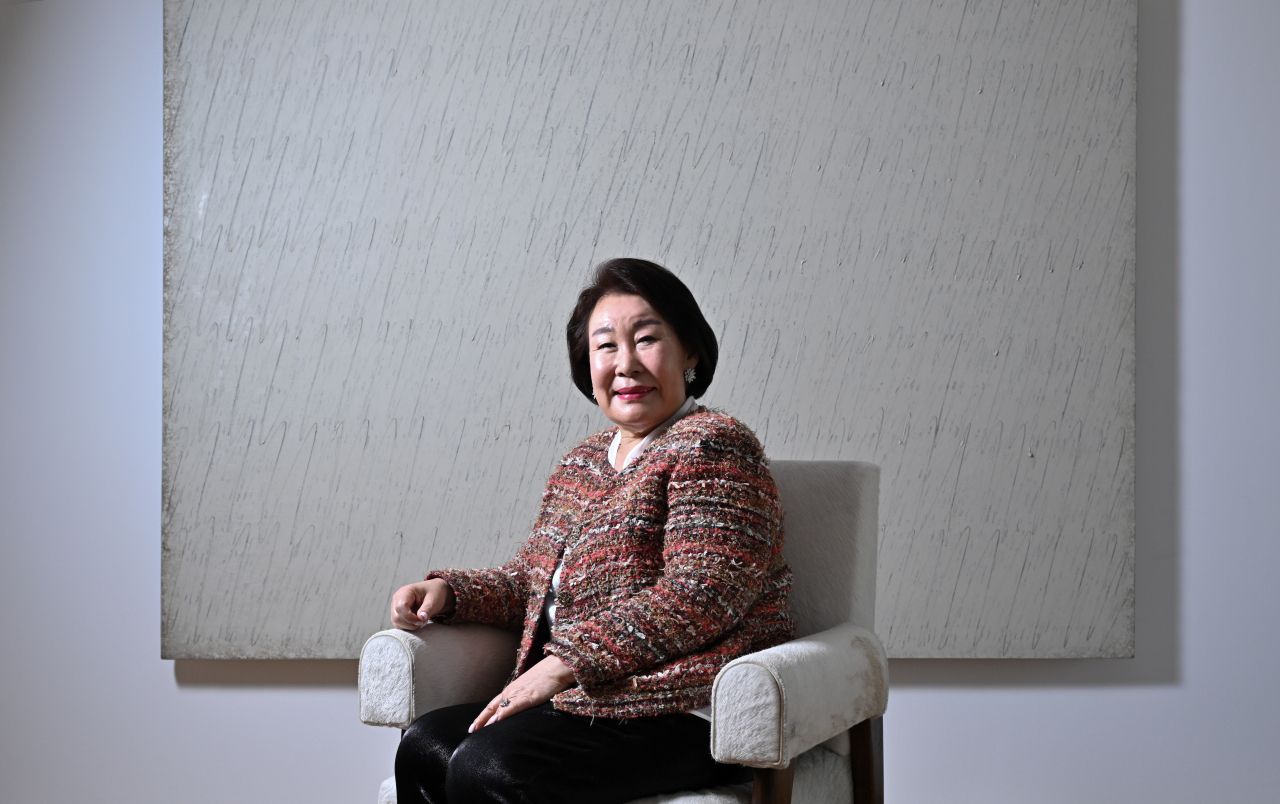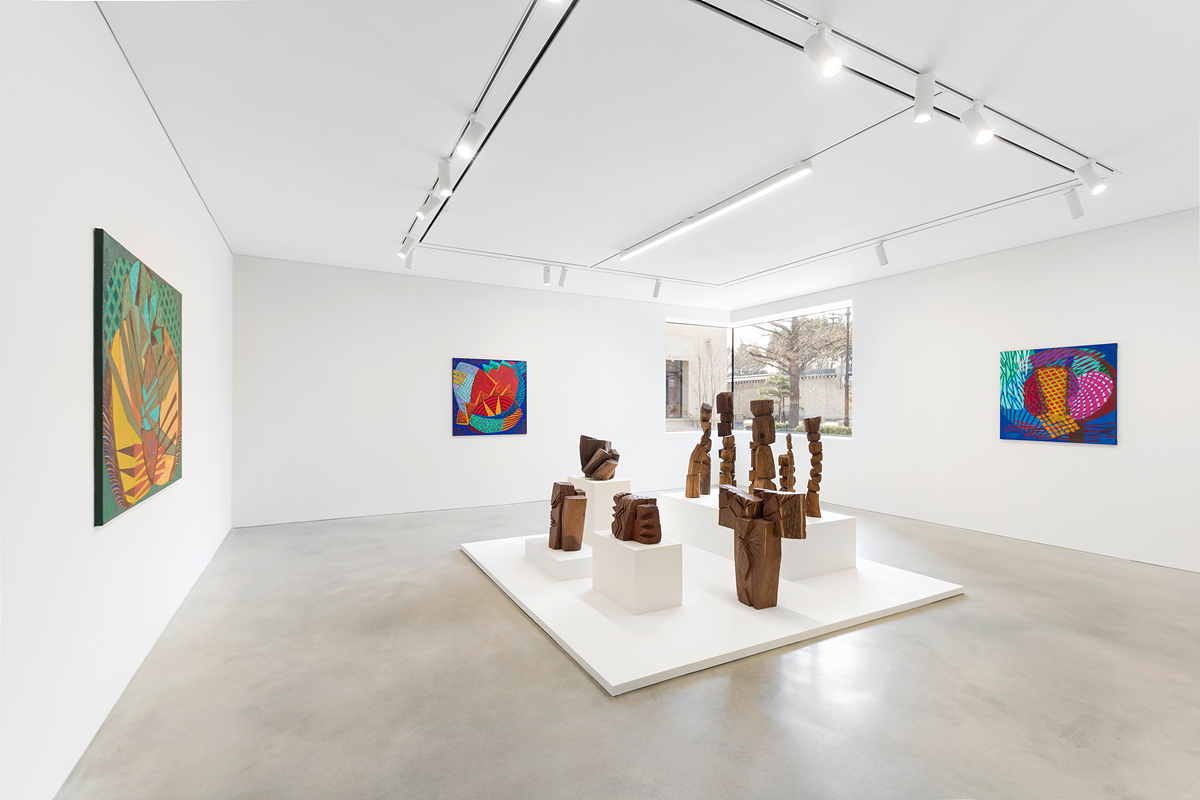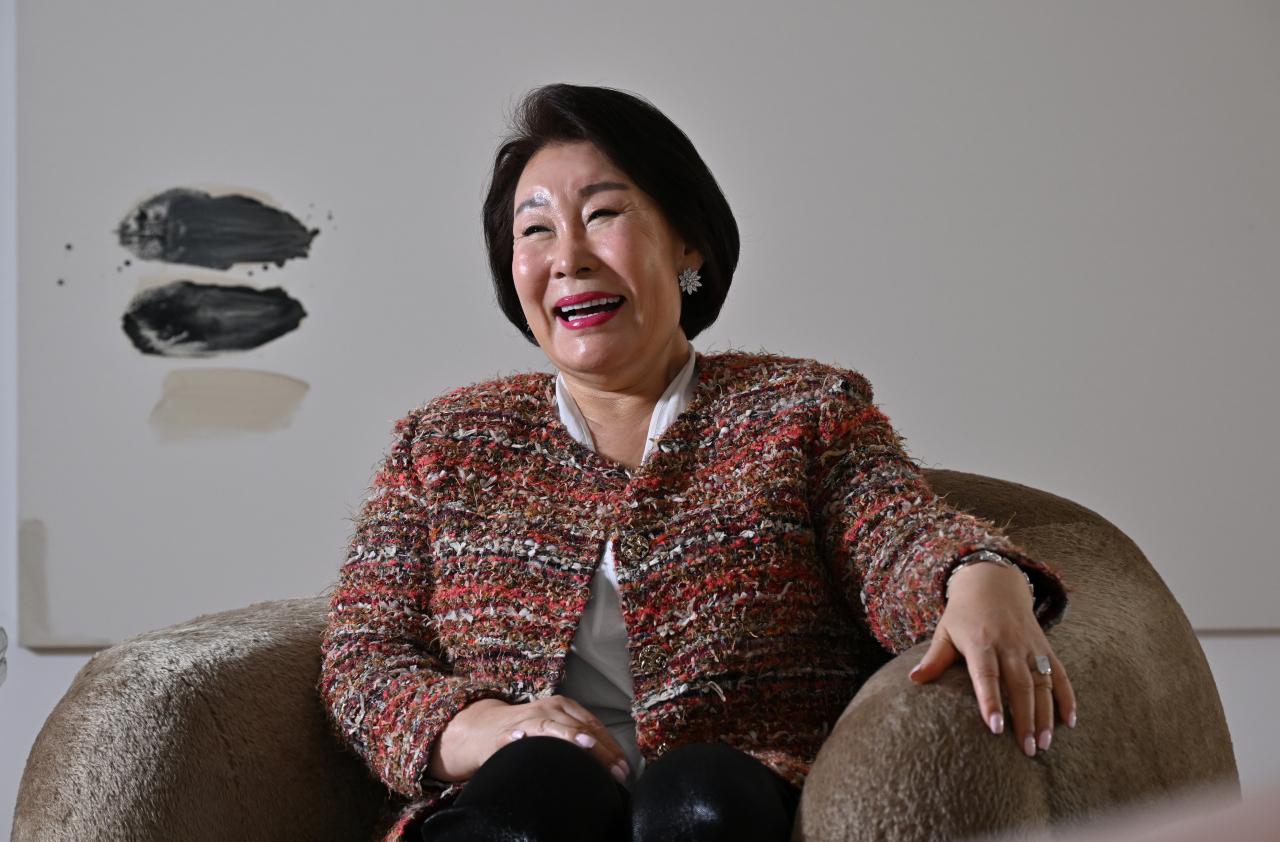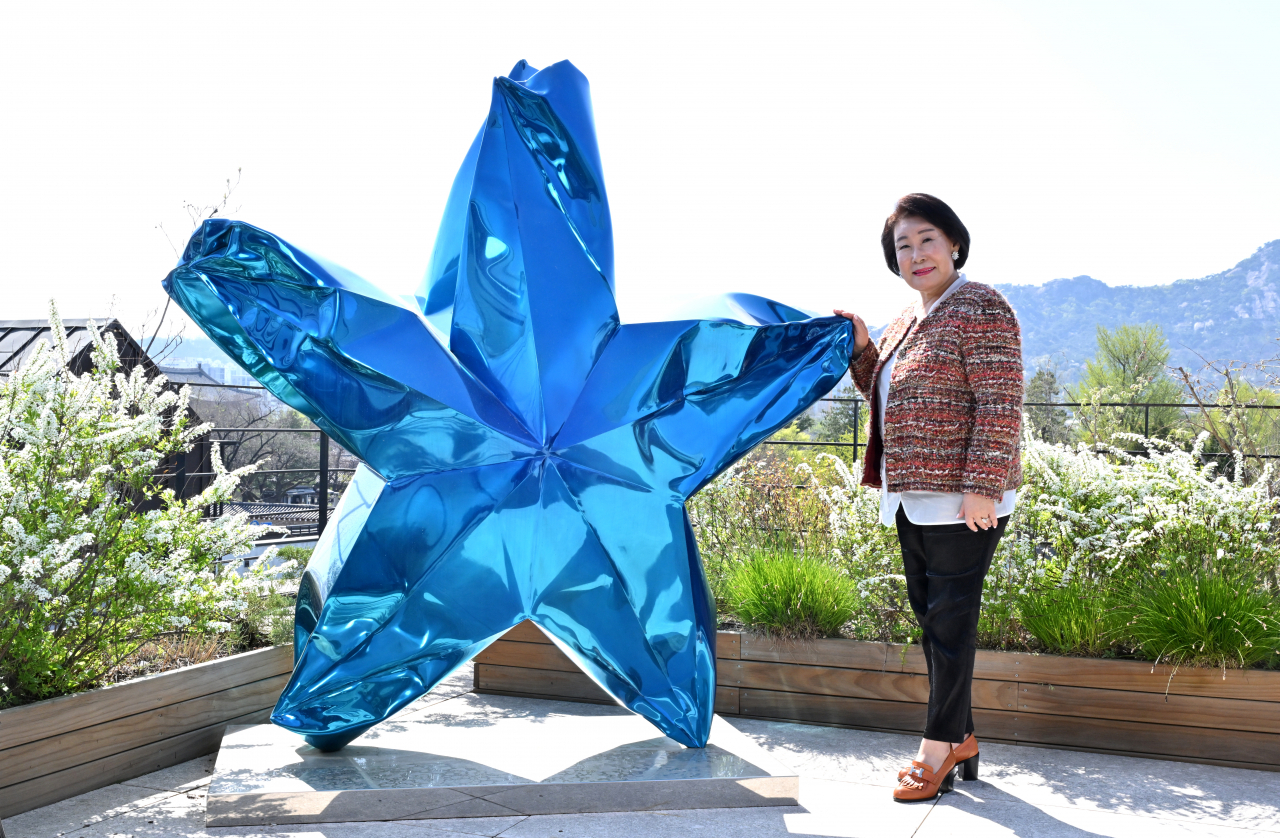 |
Lee Hyun-sook, founder of the Kukje Gallery, poses for a photo at the gallery in Seoul before an interview with The Korea Herald on April 9. (Im Se-jun/The Korea Herald) |
It was almost a decade ago that the Kukje Gallery brought dansaekhwa artists to the Venice Biennale, a watershed moment for Korean contemporary art as it came under the global spotlight with the artists garnering international recognition.
Lee Hyun-sook, founder of the Kukje Gallery, recalled why she pushed for the exhibition at the time – to present the authenticity of Korean art. The biennale’s collateral exhibition “Dansaekhwa” in 2015 showed works by Park Seo-bo, Chung Chang-Sup, Chung Sang-Hwa, Ha Chong-Hyun, Kim Whanki, Kwon Young-woo and Lee Ufan.
"It was a great success and reaction came quite quickly from the global art scene,” Lee told The Korea Herald in an interview held April 9 at the Kukje Gallery in Seoul.
“Dansaekhwa is a miracle of Korean contemporary art. It triggered international attention in Korean art, leading many Korean artists to get a chance to present works at the biennale afterward,” she said.
Today, Lee continues to bring Korean art to the global stage.
Kim Yun-shin, 89, an artist the Kukje Gallery began representing this year, is one such example. A group of Kim’s wood and stone sculptures are being shown at the main exhibition of the 60th Venice Biennale, which opened Saturday.
Lee recalled seeing Kim’s works for the first time at the “Kim Yunshin: Towards Oneness” exhibition held at the Nam-Seoul Museum of Art last year. Lee was blown away by the uniqueness of Kim’s wood and stone sculptures, particularly the colors.
“It was like a ‘welcome rain in the drought’ to meet an artist like Kim. It is really hard to discover a Korean artist at her age who has continued art in her own way, creating extensive works. I am so glad that her works are being shown to the world," Lee said.
“It was possible because she held on to her own art her entire life."
 |
An installation view of "Kim Yun Shin" at the Kukje Gallery in Seoul (Kukje Gallery) |
The gallery is now presenting Kim’s solo exhibition in Seoul, running through Sunday, introducing 50 years of Kim's artistic career. Born in Wonsan in North Korea's Kangwon Province, Kim moved to Argentina in the mid-1980s. She studied sculpture at Hongik University in Seoul.
Five artists represented by Kukje Gallery – Moon Sung-sic, Jung Yeon-doo, Gim Hong-sok, Kim So-ra and Michael Joo – are part of the special exhibition in Venice organized by Arts Council Korea, commissioner of the Korean Pavilion at the Venice Biennale, to commemorate the pavilion’s 30th anniversary. The exhibition aims to look back on the legacy of Korean art.
Leading Korean contemporary artist Yang Hae-gue, also represented by Kukje Gallery, was featured at the Korean Pavilion in 2009.
The status of Korean art has risen over the past decade, and Seoul is becoming a must-visit art destination in Asia. The last two years have been particularly busy for the gallery with the arrival of Frieze Seoul," she said.
 |
Lee Hyun-sook, founder of the Kukje Gallery (Im Se-jun/The Korea Herald) |
“Taking advantage of the global recognition of Korean cultural content, Korean art is also at the center of attention now. We had to go abroad to introduce Korean art, but things have changed over the past few years – they come to South Korea to see art, and Kim Yun-shin is among the artists,” Lee said.
Curator Adriano Pedrosa, who helms the 60th Venice Biennale, saw Kim’s works at the Nam-Seoul Museum of Art and invited Kim to join the main exhibition, “Stranieri Ovunque – Foreigners Everywhere."
Lee, however, was cautious in talking about how the Korean art scene should grow in the long term, having been at the center of the art market scene herself for more than 40 years, a period which she recalled as enduring time and being constantly buffeted by challenges.
“I think we should not be ‘too excited’ about the Korean art scene being globally recognized, becoming another art hub in Asia. It was only some 30 years ago that South Korea became affluent. Both galleries and artists should stay on their toes,” she said.
Lee said the Korean art scene is certainly on a growth trajectory, with people’s standards in collecting and appreciating art rising.
“First of all, there are many good Korean artists now, which is really promising for the Korean art scene. Now it is our role as Korean gallerists to study and find them," she said.
“There are some young Korean artists whom we are interested in. We are also looking at some female artists who are continuing a long artistic career like Kim Yun-shin, but they are really hard to find. Many female Korean artists quit careers for family and not many works are left.”
Lee hinted that the gallery is planning to unveil an exhibition next year with a new Korean artist that it will represent.
What Lee hopes for after 42 years of running the gallery is that Kukje Gallery will be remembered for having discovered many Korean artists whose art is globally recognized. Her two daughters and son are also involved in the art business.
 |
Lee Hyun-sook, founder of the Kukje Gallery, poses for a photo next to "A Star" by Gim Hong-sok at the gallery in Seoul before an interview with The Korea Herald on April 9. (Im Se-jun/The Korea Herald) |
“The last thing I can do in the art world is to find more Korean artists myself. That will be also an honor for the gallery. What else would be left to do? When I see art and the artists, I think I have sort of a good gut feeling that they will succeed," she said.
“I still feel my heart pounding when I see art that I like. You cannot ever offer others what you do not like. When it comes to qualification for gallerists, credibility should come first. That is the most important thing in the long run.”




![[Herald Interview] How Gopizza got big in India](http://res.heraldm.com/phpwas/restmb_idxmake.php?idx=644&simg=/content/image/2024/11/20/20241120050057_0.jpg)


![[KH Explains] Dissecting Hyundai Motor's lobbying in US](http://res.heraldm.com/phpwas/restmb_idxmake.php?idx=644&simg=/content/image/2024/11/20/20241120050034_0.jpg)